
This is how I see it*.
1. DO in a puthujjana** :
As we have discussed in other posts these processes in DO happen at such an incredible speed it is almost impossible for an untrained mind to recognize these chains of events in day-to-day life. However, it may be possible for one to observe some of these things when the mind is quiet, especially at the time of meditation.
It all starts with our six senses (sixfold sense base -salayatana) as this is the only way which we communicate with the outside world. This puthujjana person is influenced their by own ignorance.
When the eye meets an object, the eye consciousness arises. The union of these three: The eye + the object + the eye consciousness = contact (arises)
(The same is true for all other 5 senses).
Contact gives rise to feeling.
Feeling then gives rise to craving which gives rise to clinging and subsequently to becoming (Bhava). This is the kamma formation for resultant vipaka in the future.
After death the vinnana ( the stream of consciousness) continues, driven by the craving of previous existence. The sankaras have already done the job for its arrival
(Bhava-kamma formations for resultant vipaka).
Buddha described this beautifully in a metaphorical way. The kamma is the field, vinana is the seed you sow and the craving is the water you pour. The plant can grow (birth) given all these conditions are present at that time.
After the vinnana enters the fertilized state of a new being, the name and form (napmarupa) has to be present for it to develop further. Vinnana leads to namarupa. With namarupa the six senses continue to develop in the embryo and they begin to function fully after birth and “here we go again”, back to the beginning – to the six senses.
It important to note here that in a puthujjana mind with the ignorance, volitional formation (sankhara) are made of meritorious karma (puññ'ābhisankhāra), demeritorious (apuññ'abhisankhāra) and imperturbable (āneñj'ābhisankhāra). They all have the potential to make bahva (kamma formation for the vipaka) as long as there is craving and clinging along the way. The meritorious karma-formations (puññ'ābhisankhāra) has the potential make birth in Karma Loka and Rupa Loka (sensuous and the fine-material sphere). This could a result of positive kamma for example, Dana(generosity) Sila (virtue), Bhavana (meditation) and attainment of Rupa Jhanas (fine matrial Jhanas) respectively. The demeritorious (apuññ'abhisankhāra) sankhara will only result bhava in the Karma Loka (sensuous sphere) for example in the Hell realms, and the 'imperturbable'(āneñj'ābhisankhāra) only to the Arupa Loka (immaterial sphere)***.
Is it possible to stop DO?
To stop the chain of events in DO we basically have to get rid of ignorance and/or caving.
How do we do it?
The contemplation of the three characteristics (impermanence, suffering and non-self) is the key to its success.
What do we contemplate on?
We contemplate on the six senses and their respective stimuli, as this is where it all starts. With gradual training (insight meditation) the six senses will become less “sticky” to their respective sensory stimuli. Eventually we should be able get rid of ignorance, craving, and eventually clinging. It is most certainly difficult, needs diligent practice, patience and effort to accomplish, however the task is not impossible.
2. DO in a fully enlightened being:
In the case of a fully enlightened being there is NO MORE ignorance. This is the first step in DO. With the destruction of ignorance two other defilements, craving and clinging will also be gone (simultaneously). No more clinging, and therefore no more becoming, no more birth, no more old age, illness, death all which are causes of suffering.
However there is volitional formation (sankhara), consciousness (vinnana), namarupa, salayathana, passa, vedana still operating WITHOUT ignorance. These sankhara without ignorance, craving and clinging have NO potential to generate a new existence.
There is also no STREAM of consciousness but the consciousness of THE MOMENT is present.
Now if you apply the same metaphor Buddha used above, there is no field (formation of kamma), no seed to sow (no stream of consciousness) and no water (craving) to pour. Therefore there is no way a plant can grow (birth).
No more birth. This is the end of dukka.
Note:
*Here I have not discussed DO in the conventional 12 step process extending over many lives. What I have done is to try and apply DO to our own lives and investigate how it works.
**puthujjana: A worldly individual. An ordinary person who has not yet realized any of the four stages of Awakening.
*** Reference:http://www.palikanon.com/english/wtb/s_t/sankhaara.htm


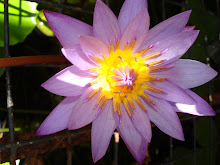












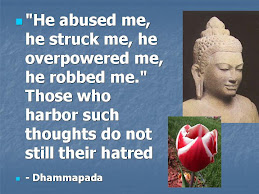

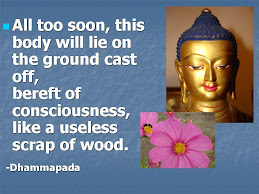
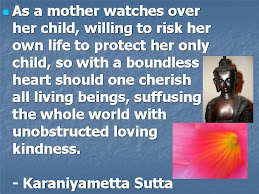
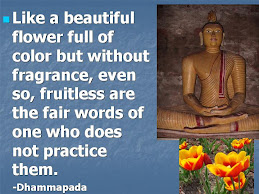
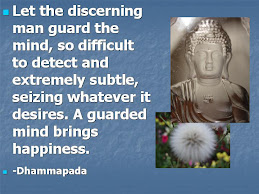

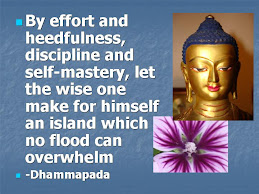

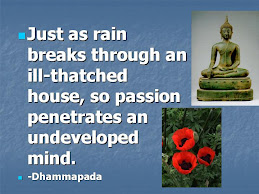

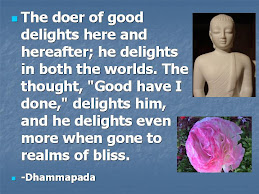
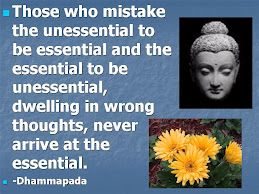
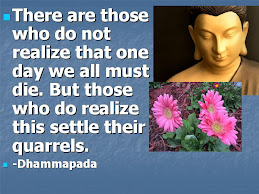
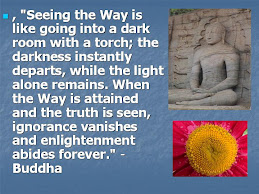

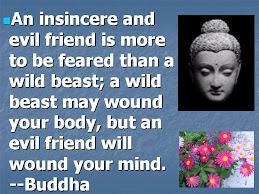
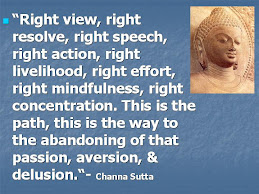

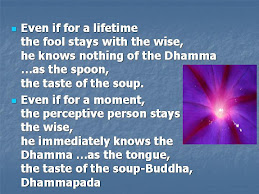



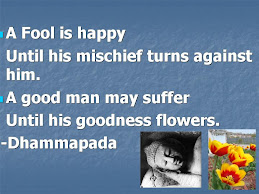
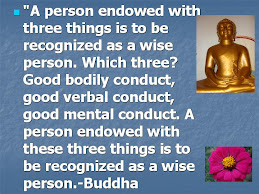

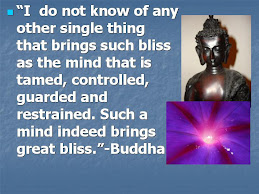
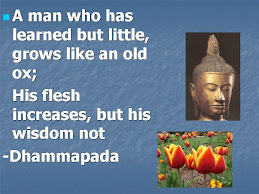
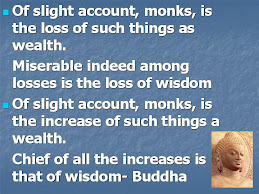

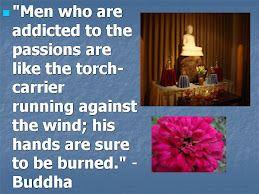


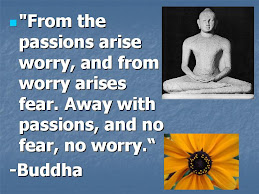
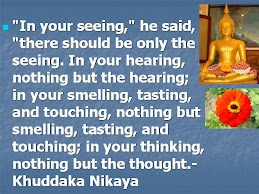




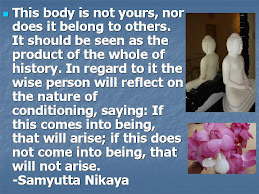
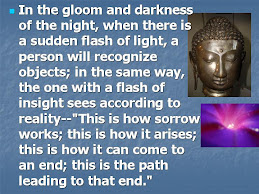
















No comments:
Post a Comment